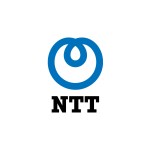
David Gold, Senior Vice President, Services Go-to-Market, NTT. Source: Supplied.
With many businesses now operating on hybrid and dispersed work models, enterprise network architecture has irrevocably changed. As far fewer employees choose the office as their primary workplace, organisations cannot afford to have a network outage in this network-dependent workforce.
With IT environments becoming increasingly complex, organisations that are able to detect and resolve network and IT issues at a faster speed, stand to benefit from higher productivity, a lighter workload for IT teams, and a better user experience. However, according to NTT’s 2022–23 Global Network Report, 89% of IT executives have operational concerns about running complex, intelligent networks while complying with security requirements,
In this rapidly evolving network landscape, organisations need to be proactive to keep pace and stay relevant. So how do businesses stay ahead of the curve to quickly locate the source of a network problem and solve the issue effectively?
Beyond the network observability buzz
As data volumes grow and more devices connect to networks than ever before, network monitoring can no longer depend on the labour-intensive and manual approaches of the past. 75% of IT practitioners face more complexity and wrestle with overwhelming data noise, while 85% are challenged to cut through data volumes to identify the root causes of performance issues.
Observability provides businesses with normalised, real-time visibility into availability and performance up and down the IT stack. It covers computing, storage, networks, and the public internet — from customer-facing applications all the way to the back end. Network observability allows us to move beyond individual network infrastructure components to see the bigger picture.
Data gathered through sophisticated monitoring, insights powered by AI, machine learning and IoT gives teams deep and granular visibility into trends and performance. They can collect a broad and complete set of information on the network’s past, current and future states, enabling your organisation to identify and understand patterns of network issues and put preventive measures in place.
Overcoming challenges to improve network visibility
If visibility is about having a clear picture, then observability is about getting the big picture – and finding answers, fast.
When a single component falters, organisations often take hours and sometimes days to identify the root cause, which can have a domino effect on network access and users. Modern organisations need modern networks, yet legacy infrastructure, including hardware and software in standalone disparate systems, prevents complete monitoring and observability
To address this, you need to go beyond seeing just the various elements of your IT environment: you need to reach complete network visibility, down to each network layer, while paying attention to the user experience.
By increasing the scope of your network visibility, your organisation will improve monitoring results and have a solid grasp of what’s happening across the IT environment, including the impact of events on business processes and users. IT Ops, development, and networking teams can then quickly and easily identify anomalies, understand the root causes through dependency analysis, and fix issues before they affect users and the business.
Introducing network observability into your core operations
The more observable your network is, the better. Organisations will be able to solve more performance issues, in real-time, end-to-end, faster, from device and user access to cloud applications.
Your corporate IT network is only as good as the user experience. As the needs of users evolve, with remote workers expecting office-like performance and hybrid workers looking for a home-like experience, proactively managing your network performance has never been more important.
Trouble-shooting cloud applications and performance presents many challenges, especially as traffic can bypass corporate infrastructure and take on unidentified loads. Gaining a single view and deeper understanding of your network means untangling any current complexities, upgrading your systems and platforms, and breaking down IT silos so you can observe your network as a single entity.
Having a clear, data-driven observability strategy will enable organisations to have better observability, to see the big picture and provide actionable insights to inform decisions that will keep your organisation moving forward. The ability to monitor your entire IT stack is essential to identifying and remediating performance issues before they affect your business.
NTT and Cisco’s new 360 Observability platform, powered by Cisco’s full-stack observability suite of tools, provides insights into business-critical applications, networks and your infrastructure, enabling IT and business leaders to focus on leveraging revenue-generating and business-critical applications, while NTT’s Managed Services with Cisco AppDynamics and ThousandEyes technologies work to ensure your infrastructure performance.
Watch below to get the full picture with NTT’s 360 Observability:
https://www.youtube.com/watch?app=desktop&v=AqlVaupdpvc

NTT Ltd. is a leading IT infrastructure and services company serving 65% of the Fortune Global 500 and more than 75% of the Fortune Global 100. We lay the foundation for organisations’ edge-to-cloud networking ecosystem, simplify the complexity of their workloads across multicloud environments, and innovate at the edge of their IT environments where networks, cloud and applications converge. Visit us at services.global.ntt


COMMENTS
Reader comments have been turned off on this post.